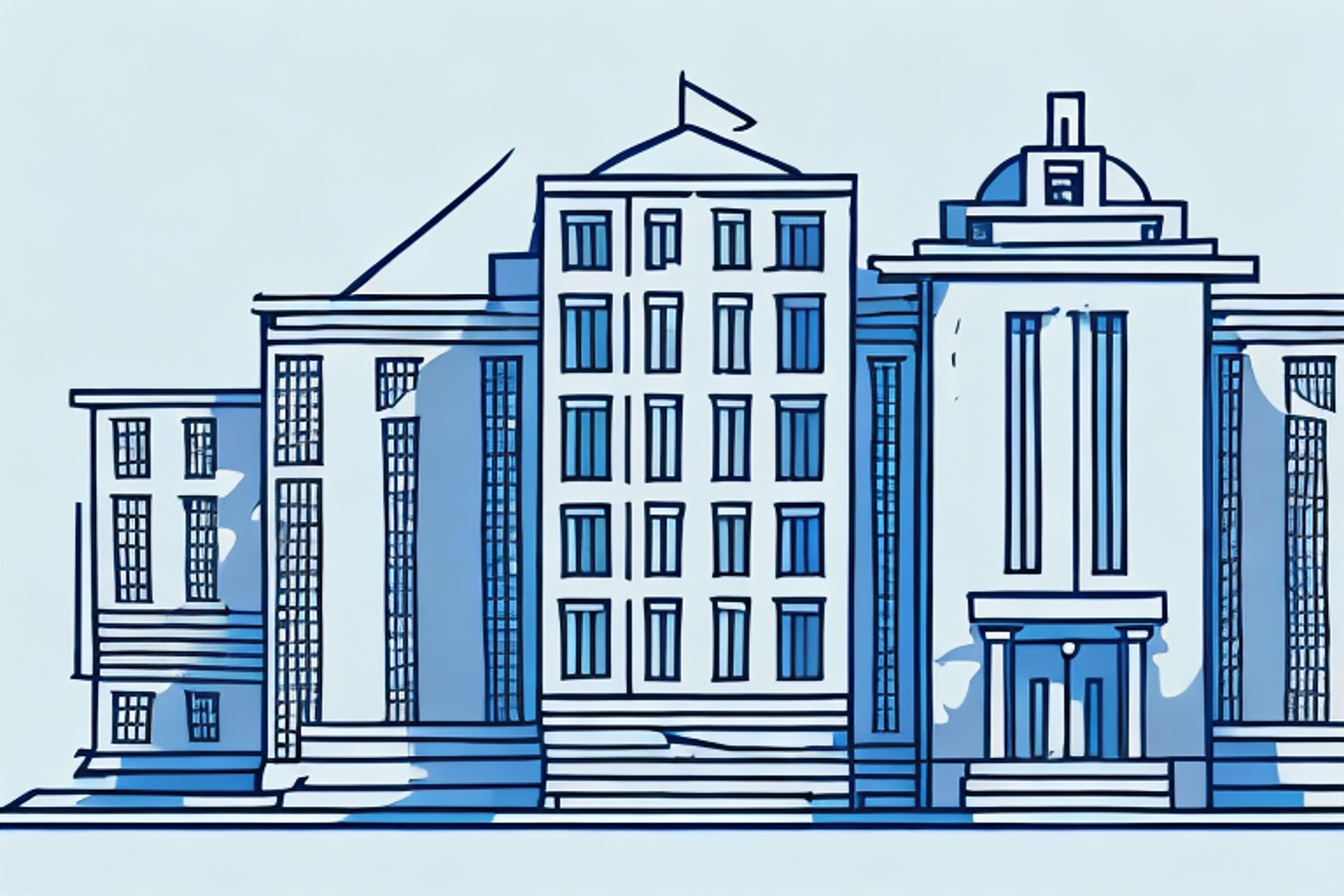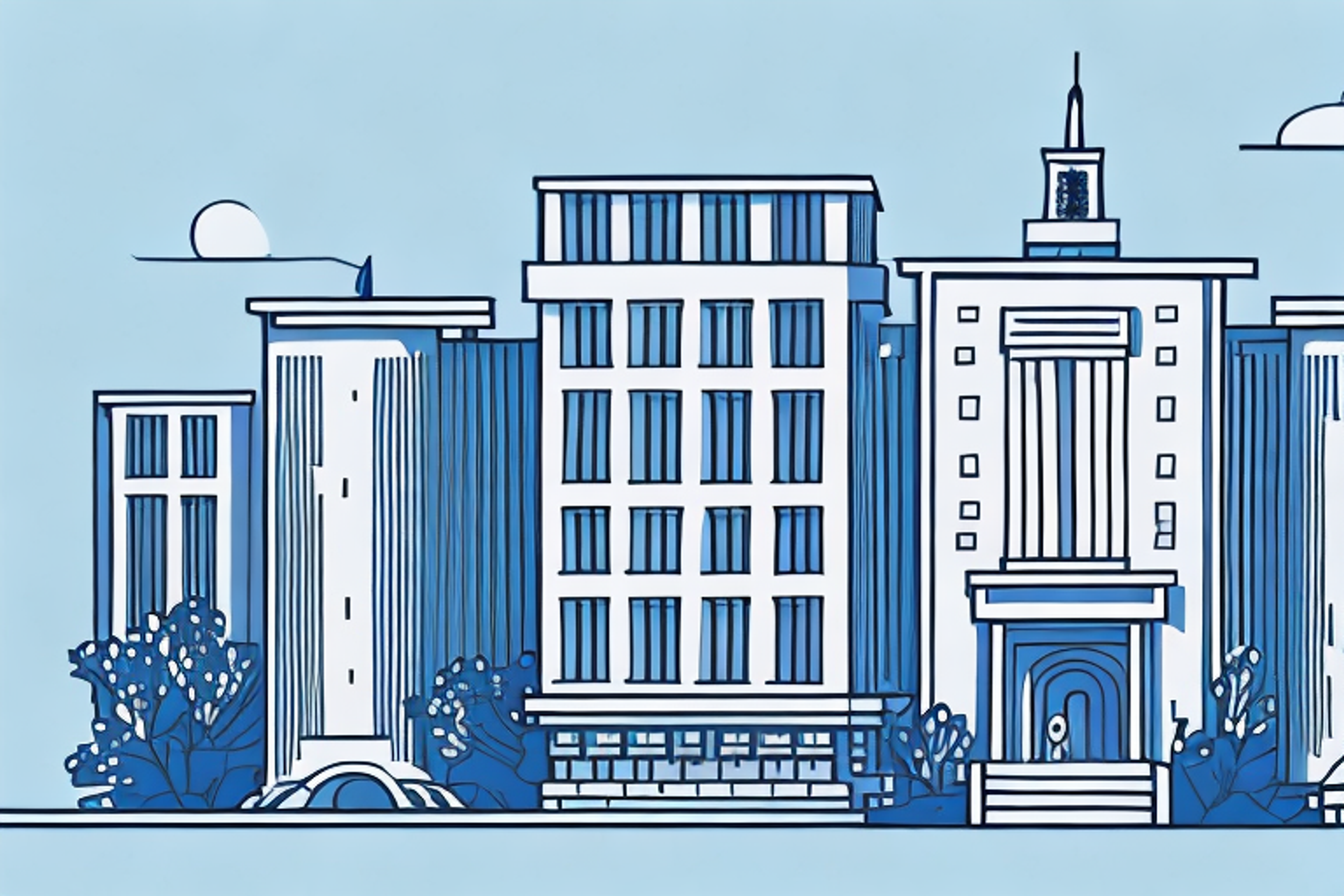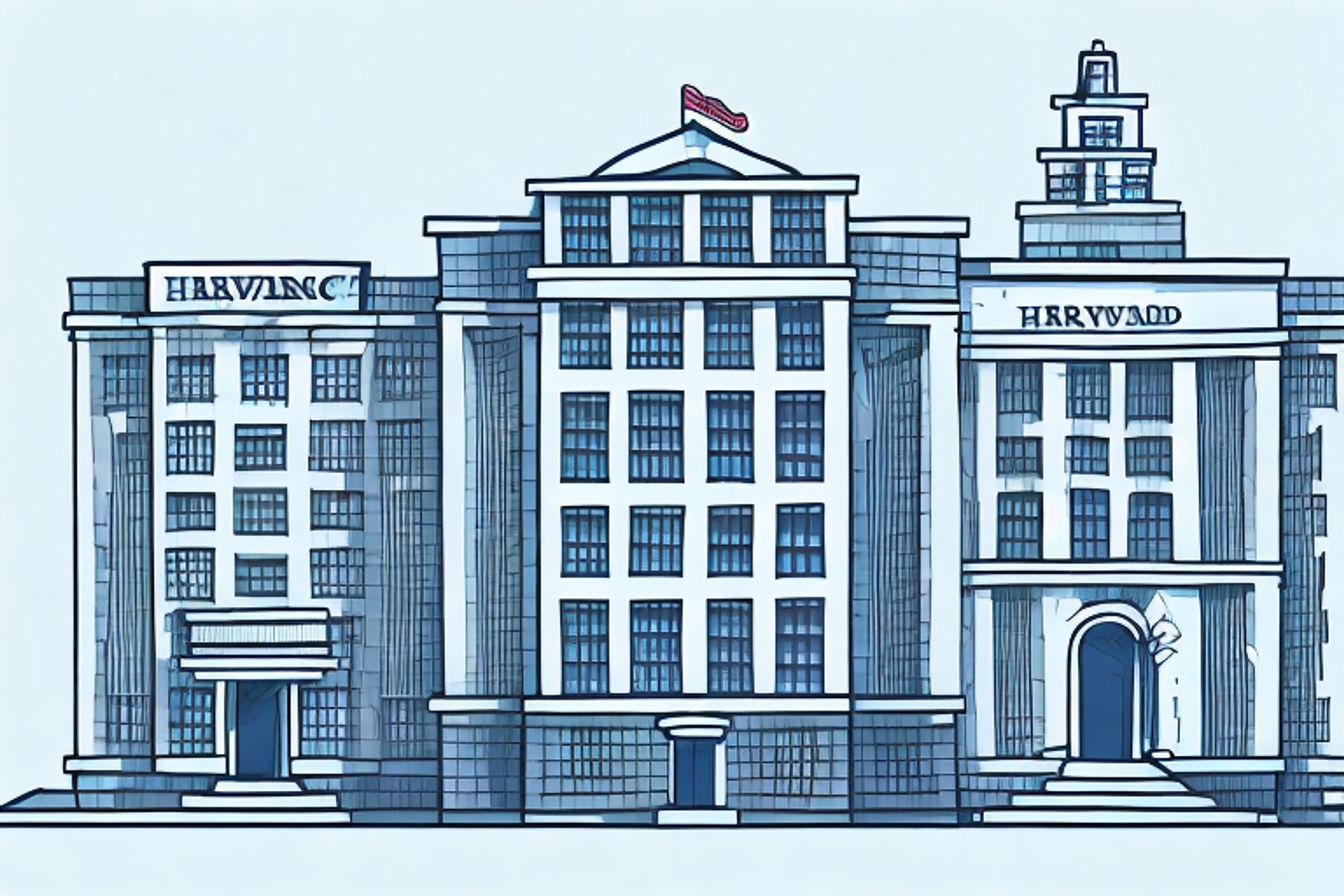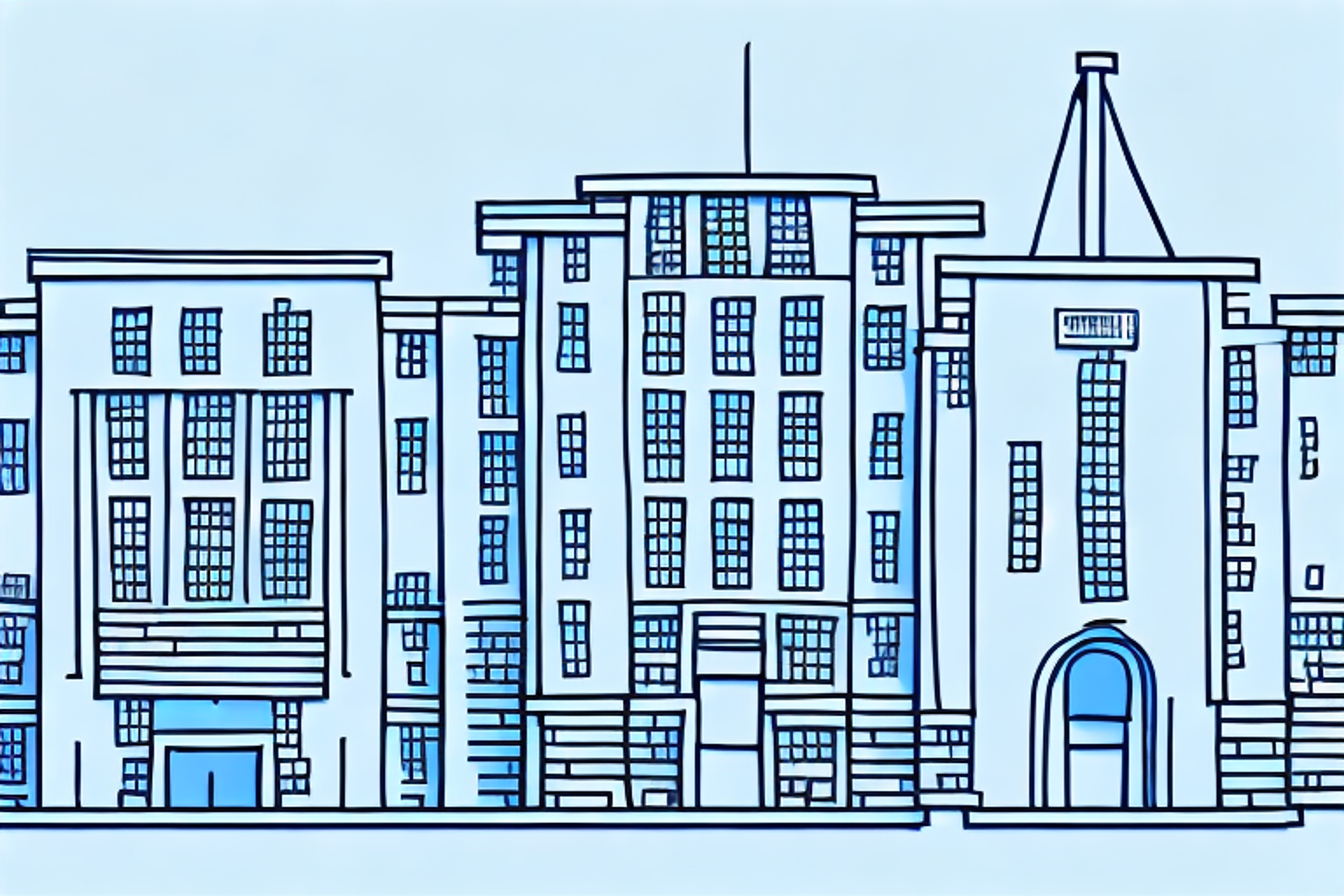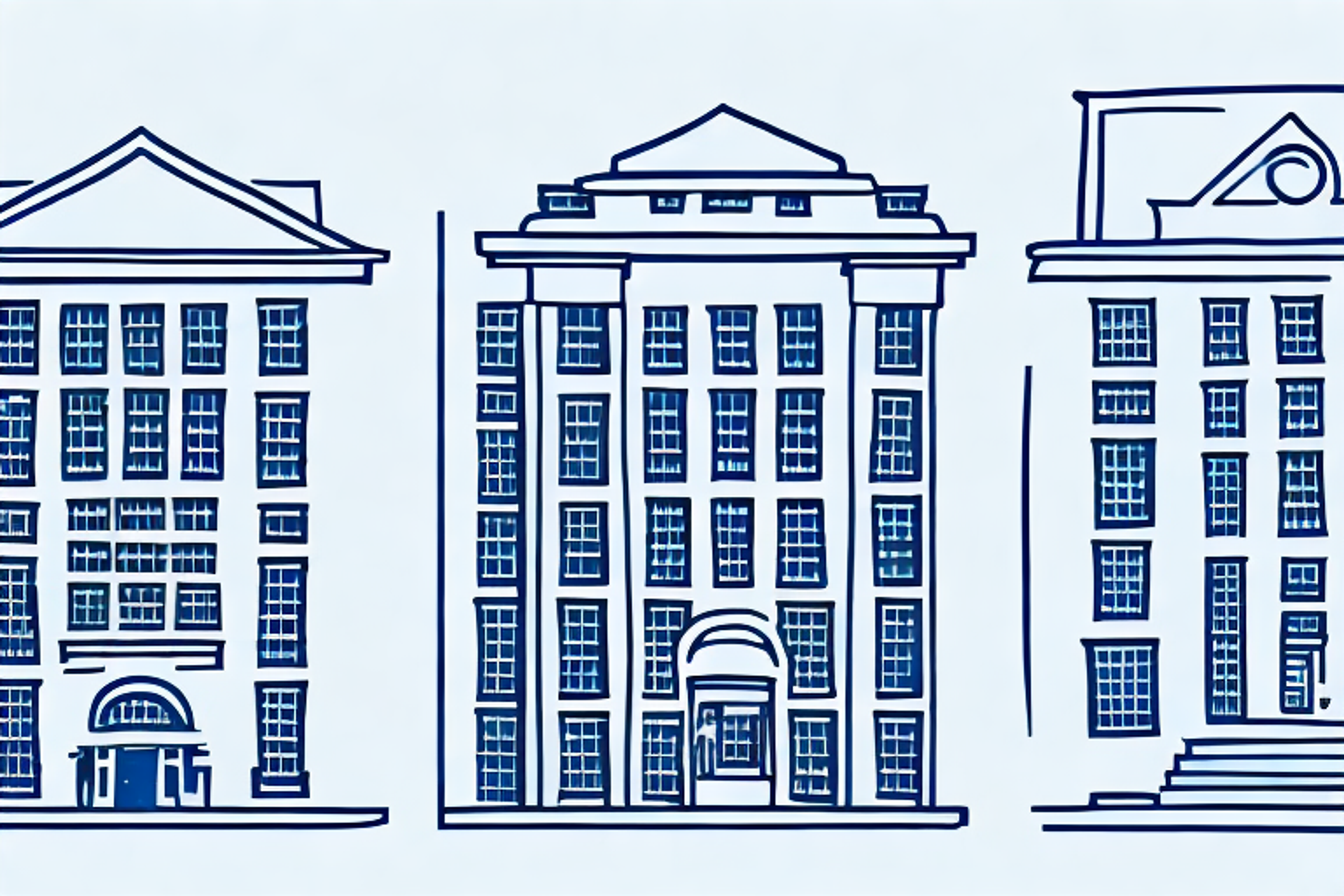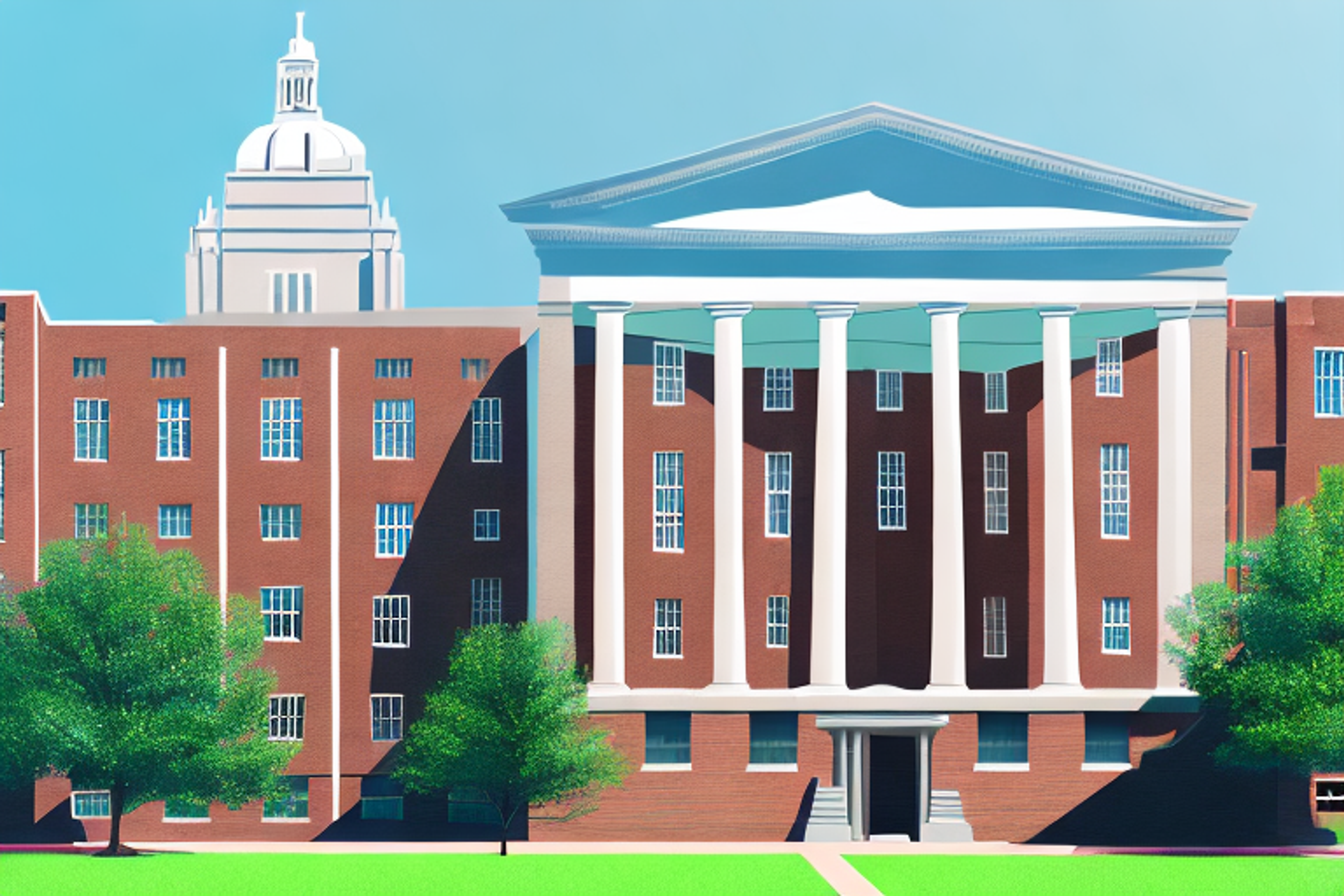University of Virginia School of Law Vs. Georgetown University Law Center: An In-Depth Comparison
Are you considering attending law school but can't decide between the University of Virginia School of Law and Georgetown University Law Center? Look no further! Our in-depth comparison breaks down everything from location and curriculum to faculty and job prospects.
Posted March 6, 2025

Table of Contents
If you're considering attending law school, you have to make a crucial decision: where should you go? Two highly reputable options to consider are the University of Virginia School of Law and Georgetown University Law Center. In this article, we'll take an in-depth look at both of these institutions, comparing everything from faculty and resources to campus locations and financial aid options.
Introduction to the two law schools
The University of Virginia School of Law, located in Charlottesville, Virginia, is consistently ranked as one of the top law schools in the nation. It was founded in 1819 and has since become known for its rigorous academic program and commitment to developing lawyers who are ready to lead. Georgetown University Law Center, located in Washington D.C., is also highly regarded for its academic programming, faculty, and research offerings. With a history dating back to the 19th century, Georgetown Law has a global reach, with many alumni serving in top government positions across the world.
One of the unique features of the University of Virginia School of Law is its emphasis on experiential learning. Students have the opportunity to participate in clinics, where they work on real cases under the supervision of experienced attorneys. This hands-on experience allows students to develop practical skills and gain valuable experience before entering the workforce.
Georgetown Law is also known for its commitment to public interest law. The school offers a variety of programs and resources for students interested in pursuing careers in public service, including a loan repayment assistance program for graduates who work in public interest positions. Additionally, Georgetown Law hosts an annual Public Interest Law Career Fair, which connects students with employers in the public interest sector.
History of University of Virginia School of Law
The University of Virginia School of Law opened its doors in 1826, with Thomas Jefferson serving as the founder. Since then, it has become known for its academic rigor and strong alumni network. The school also played a role in shaping legal education in the United States. The case method, a teaching method centered around analyzing legal cases, was first introduced at the University of Virginia School of Law in the late 19th century and has since become a widespread teaching method in legal education.
History of Georgetown University Law Center
Georgetown University Law Center was established in 1870 and is the second oldest law school in the United States. Its founder, Reverend James A. Doonan, was a leader in advocating for Catholic education in the United States. Georgetown Law has since become known for its strong academic programs and global reach, with alumni serving in top government positions across the world.
Comparison of location and campus facilities
Location is an important consideration when choosing a law school. The University of Virginia School of Law is located in Charlottesville, Virginia, a small city known for its charming downtown area and historic architecture. The school itself is located on a picturesque campus overlooking the Blue Ridge Mountains. Georgetown Law is situated in Washington D.C., giving students access to the wealth of resources that come with being in the nation's capital. The school's campus is located in the heart of the city, close to many of the government buildings and institutions that make D.C. a hub of political activity.
Both law schools have state-of-the-art facilities designed to meet the needs of their students. The University of Virginia School of Law's library, for example, is one of the largest law libraries in the United States and includes a special collections room with rare legal texts. Georgetown Law's library is also highly regarded and includes a large collection of digital resources that students can access remotely.
Faculty and staff comparison
The faculty and staff at a law school can play a significant role in shaping the student experience. The University of Virginia School of Law has a faculty of over 70 full-time professors, many of whom are leaders in their respective fields. Georgetown Law also has a large, diverse faculty, including many who have extensive experience working in government and the private sector. Students at both schools have the opportunity to learn from experts in a wide range of legal areas.
Academic programs offered by both law schools
Both the University of Virginia School of Law and Georgetown University Law Center offer a comprehensive range of academic programs designed to prepare students for careers in law. The University of Virginia School of Law offers a rigorous J.D. program as well as several specialized programs, including an LL.M. in taxation and an LL.M. in law and public service. Georgetown Law offers a similar range of programs, including a J.D. program and specialized LL.M. programs in areas such as national security law and international business and economic law.
Comparison of admission requirements and acceptance rates
The admission requirements and acceptance rates for law schools can vary widely. The University of Virginia School of Law has a highly selective admissions process, admitting just 20% of applicants. The school requires applicants to take the LSAT and submit transcripts and letters of recommendation. Georgetown Law has a similarly competitive admissions process, with an acceptance rate of around 25%. The school requires letters of recommendation, transcripts, and LSAT scores, but also accepts the GRE in lieu of the LSAT.
Student life and community at each law school
Law school can be a challenging and demanding experience, and a supportive community can make all the difference. Both the University of Virginia School of Law and Georgetown Law are known for their supportive communities and active student organizations. The University of Virginia School of Law has over 40 student organizations, including groups focused on pro bono work, sports, and social activities. Georgetown Law has over 100 student organizations, including groups for affinity groups, academic interests, and public service initiatives.
Career prospects for graduates from each law school
Ultimately, the success of a law school is measured in the success of its graduates. Both the University of Virginia School of Law and Georgetown Law have strong career development programs designed to help students succeed after graduation. Graduates of the University of Virginia School of Law have gone on to careers in a wide range of legal fields, including government service, private practice, and public interest advocacy. Georgetown Law graduates have also gone on to successful careers in law, with many serving in leadership positions in government and the private sector.
Comparison of tuition fees and financial aid options
Tuition and financial aid are important considerations when choosing a law school. The University of Virginia School of Law is a public institution, and tuition is lower for in-state residents. Out-of-state residents can expect to pay around $55,000 per year in tuition and fees. Georgetown Law is a private institution, and tuition is around $60,000 per year. However, both schools offer generous financial aid packages to eligible students, with the majority of students receiving some form of aid.
Alumni network comparison
The alumni network of a law school can be a valuable resource for students and graduates. The University of Virginia School of Law has a strong alumni network that includes many successful lawyers, judges, and government officials. Graduates of Georgetown Law have also gone on to successful careers in law and can be found in leadership positions across the world.
Research opportunities and resources available at each law school
Research is an integral part of legal education, and both the University of Virginia School of Law and Georgetown Law offer extensive research opportunities and resources for students. The University of Virginia School of Law, for example, has a robust research program with faculty members working on everything from environmental law to intellectual property. Georgetown Law's research centers focus on topics such as national security, human rights, and gender and the law.
Comparison of clinical programs and experiential learning opportunities
Clinical programs and experiential learning opportunities can give law students practical experience and help them develop important skills. At the University of Virginia School of Law, students can participate in clinical programs focused on areas such as criminal defense and intellectual property. Georgetown Law offers a similar range of clinical and experiential learning opportunities, including a legal clinic that focuses on immigration and asylum law.
Diversity and inclusion initiatives at each law school
The legal profession has historically been lacking in diversity, and law schools have a responsibility to promote diversity and inclusion. Both the University of Virginia School of Law and Georgetown Law have launched initiatives designed to promote diversity and inclusivity on their campuses. The University of Virginia School of Law, for example, has a Diversity Committee that works to improve representation and create a more welcoming environment for students from all backgrounds. Georgetown Law has a Center for Diversity and Inclusion that offers programming and resources designed to promote diversity and inclusivity.
Student organizations available at each law school
Law school can be challenging, and joining a student organization can give students a sense of community and support. Both the University of Virginia School of Law and Georgetown Law have thriving student organizations focused on everything from public interest law to social activities. These organizations can help students develop leadership skills, network with like-minded individuals, and gain practical experience outside of the classroom.
Notable alumni from both law schools
Graduates of the University of Virginia School of Law and Georgetown Law have gone on to achieve great success in a wide range of legal fields. Notable alumni of the University of Virginia School of Law include former U.S. Senator and Governor of Virginia Tim Kaine and former U.S. Supreme Court Justice Lewis F. Powell Jr. Notable alumni of Georgetown Law include former Secretary of State Hillary Rodham Clinton and former U.S. Attorney General Eric Holder.
Prospective student considerations when choosing between the two law schools
Choosing between the University of Virginia School of Law and Georgetown Law is a difficult but important decision. Prospective students should consider various factors, including location, academic programming, faculty, and career prospects, as well as their personal goals and aspirations. Visiting each campus, attending information sessions, and talking to current students and alumni can also provide valuable insights into the student experience at each law school.
Conclusion: Which law school is the better choice for you?
Ultimately, the decision of which law school is the better choice for you depends on your individual needs and goals. Both the University of Virginia School of Law and Georgetown Law offer top-notch academic programs, extensive resources and support, and successful alumni networks. Deciding on a law school requires careful consideration of factors such as location, class size, faculty, cost, and career prospects. The key is to carefully evaluate each institution and determine which one is the best fit for your particular needs and goals.
